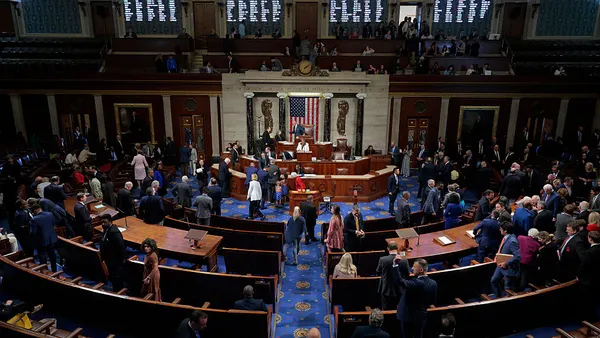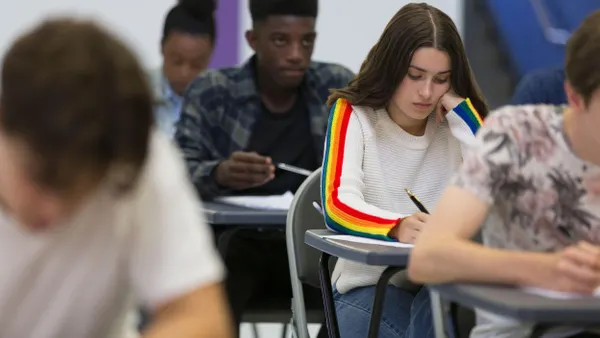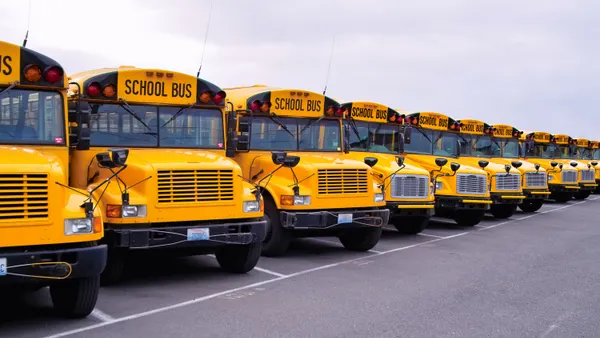Dive Brief:
- National trends in special education dispute resolution for the 2021-22 school year show a return to pre-pandemic activity, according to data reported by the Center for Appropriate Dispute Resolution in Special Education, or CADRE, a federal technical assistance center that supports state and local efforts to prevent and resolve disputes between school systems and families of students with disabilities.
- Data from the 2020-21 school year — when many school districts were in virtual or hybrid mode — did not align with previous years' trends. For example, national data, excluding New York state, showed the number of due process complaints filed dropped 29% during the pandemic 2020-21 school year, according to CADRE.
- Promising trends from the 2021-22 school year data include an increase in mediation requests and agreements reached at that voluntary stage, as well as a higher rate of agreements made during mandatory resolution periods, CADRE said.
Dive Insight:
Early dispute resolution approaches, such as voluntary mediation, can cut down on more adversarial and costly avenues to address school-family disagreements, CADRE said. Plus, since mediation can result in two parties reaching their own agreement — rather than a hearing officer or another third party making a decision — there's typically a higher rate of compliance with mediation agreements, according to CADRE.
The organization was encouraged to see the overall increase in mediation requests and expects this to be "the beginning of an upward trend," said Melanie Reese, director of CADRE, in an email.
Regarding more formal dispute resolution approaches, CADRE reports 11,290 due process complaints filed in 2021-22, where parents present their case to an administrative hearing officer. That is slightly less than the previous 10-year average.
But that number excludes data from New York state, which CADRE called a "significant outlier." When including New York in the total due process complaints filed, the number jumps to 29,490 for 2021-22. That calculates to a 198% increase in filings over the previous 10-year period.
More detailed data for New York is only updated through the 2020-21 school year. However, the statistics for that state show an increasing rate of due process complaints filed starting with the 2015-16 school year. The number of resolution meetings held in New York has also increased during that same time frame.
CADRE is planning to release a national longitudinal database in the next few weeks that will allow for state-to-state comparisons of dispute resolution data from 2004 to the most current reporting year.
Written state complaints, which involve a state-led investigation into a concern brought forward by anyone, showed a 47% increase in 2021-22 over the previous year after remaining relatively steady between the 2011-12 and 2019-2020 school years.
"The increase in state complaints and due process complaints did not come as a surprise based on what we’ve been hearing from the state agencies and parent centers for the past couple of years," Reese said.
She added that the trend may be evidence of successful efforts to inform families of their dispute resolution rights under the Individuals with Disabilities Education Act. "There are certainly situations where due process or state complaints are the most appropriate options to address a dispute. However, the costs associated with the more adversarial options must be considered," Reese said.
A September 2023 report from the Council of Parent Attorneys and Advocates said the written state complaint process was flawed with some states having more favorable results for school systems. COPPA's report said that about 40% of complaints in 2019-20 resulted in findings of noncompliance against education agencies.
CADRE's report on the 2021-22 school year shows the number of written state complaint reports issued with findings of noncompliance at 55.6%, down from a 10-year average of 62.8%.













